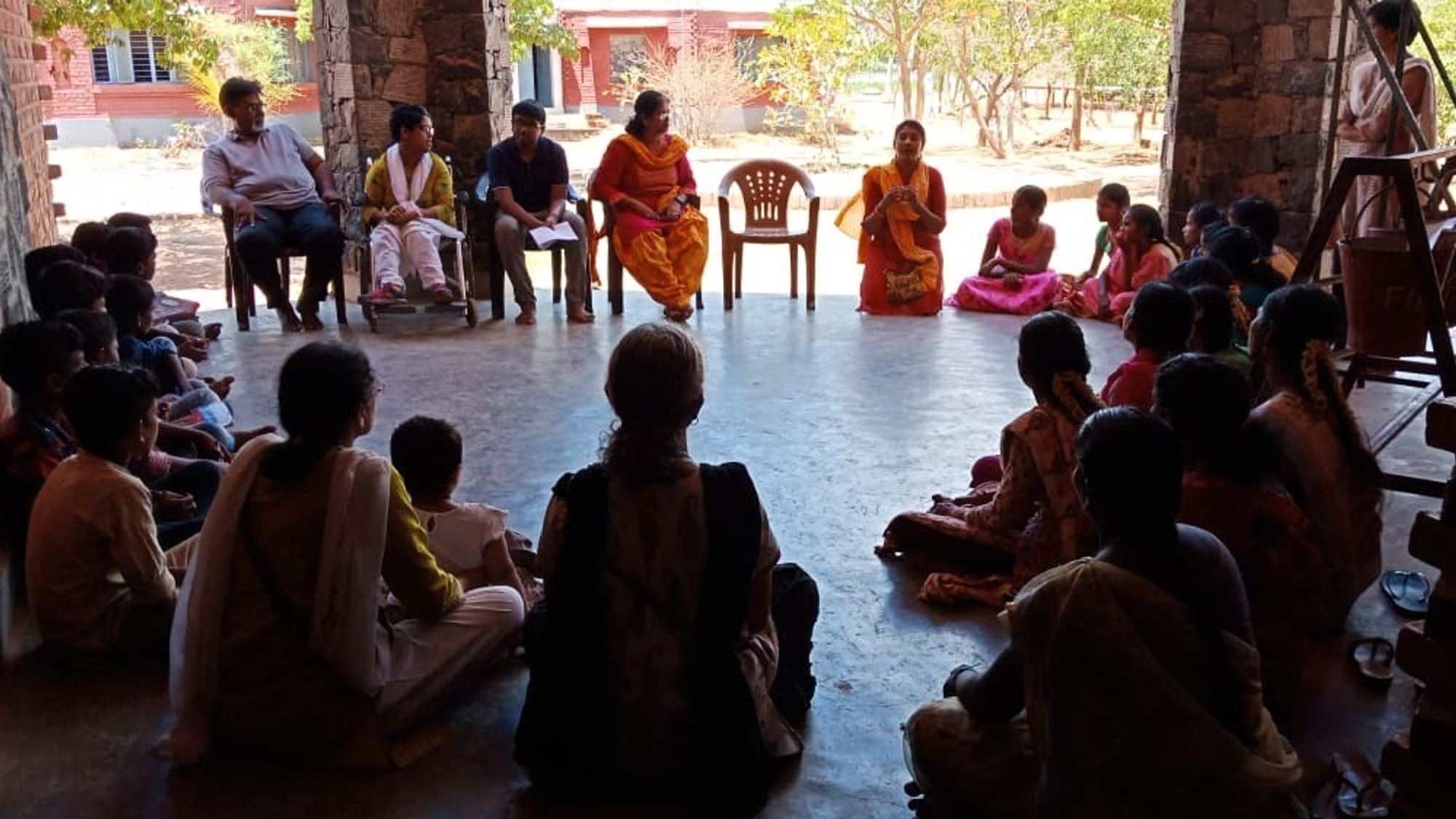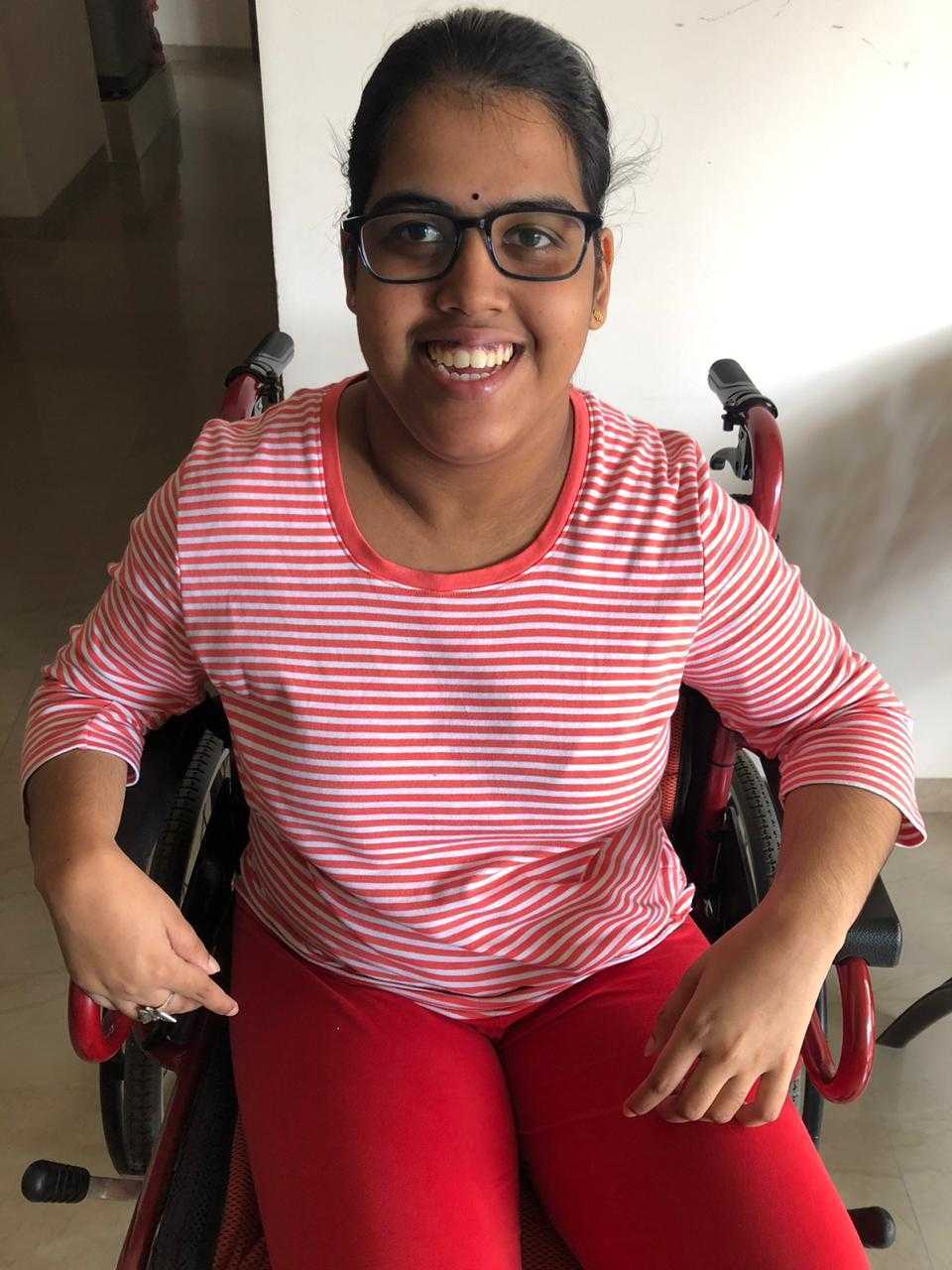“Inclusive education changed my life”: Upasana Ravikannan
30 December 2020 — Written by Reyan Mishra

Not everyday does one come across a person who lives life with sheer resilience, defying all odds along the way. Well, I was fortunate enough to meet one such young lady.
Upasana Kannan is a high school graduate with Special Education Needs (SEN), who ranks persistence above and before any other virtue. She is the founder and facilitator of GoPaadhai which is an NGO that enables underprivileged children to follow their passion through quality education. In addition, she volunteers with educational organizations to help young students. In a recent conversation with Beyond 8, the 18-year-old highlighted her goals, interests, and approach to life. Excerpts:
Reyan: The first experiences are always priceless. Can you recall your first feelings as you were introduced to the concept of inclusive education?
Upasana: I have been studying in an inclusive setup since kindergarten so I cannot clearly remember how I felt at that age. But having been associated with an inclusive school for over a decade, I now feel it gave me wings to fly. I used to be a kid who did not have much of a social life. It was under an inclusive setup that I learned to come out of my comfort zone, step up, and speak up - in other words, it taught me that every opinion matters. The exposure that I received at Headstart Learning Centre (my school) has turned me into a confident person.
Reyan: I see the relevance of inclusive education is still quite debatable. That brings me to – what do you think of inclusive education as being of help to students with special needs?
Upasana: I was never a part of a special curriculum. From my experience over the years, I have known that not everyone respects or accepts you. It allowed me and everyone who is a part of inclusive learning to see the world as it is – with its fairness and ugliness. There are students who are slow learners so we help each other just like everybody in society should. For example, I help a few of my friends in subjects that are my strengths and they help me back when I need them. We don’t judge anyone on any parameters, we accept one another as they are and that helps every learner. To me, that’s inclusion.
Reyan: If you were in charge of the system, what would be your strategy to do better for children with disabilities?
Upasana: I strongly believe that children are the future and they can make it better or worse – it’s in their hands. No matter what the differences are, it’s not wise to treat anyone any differently than others. If children are taught about inclusion and what significance it carries, they are going to grow up to support inclusiveness anywhere they are in the whole wide world. Adults are rigid in their perspective so it’s difficult to change them immediately – on the other hand, children and young learners are particularly curious about a fresh system that means good. With my organization GoPaadhai, I lead a team that helps underprivileged children get a better quality of education. I always tell my teammates that no matter what a child is capable of, he/she should always be able to enjoy liberty and be rightful to equitable treatment. In a nutshell, this is how I would like to approach the change in the system - include children in the good inclusive vision and teach and train them for the path ahead.
Reyan: You told me you wanted to become a psychologist. I’m so interested in knowing how you weaved in your dreams of becoming a child psychologist into your education as a high schooler.
Upasana: I have wanted to become a psychologist ever since I was in the 7th grade. My cousin sister who is currently doing her Ph.D. in the US served as an inspiration to me. Besides helping me pick up books to read, she would guide me on how to go about my studies. I read a lot of materials from the area of psychology and as it turns out - I love all of them. Most importantly, I enjoy working with children. They come to me with their questions and it always gives me happiness to be able to help them. So I think I have chosen the right path for myself and knowledge helped me pursue it.

Reyan: How did an inclusive setup help you get closer to your hidden, true self?
Upasana: I never realized the importance of inclusiveness until I bid farewell to my alma mater. In retrospect, I believe my confident and straight-to-the-point attitude comes from the diverse experiences I have had at Elina and HLC. When I was in 9th grade, I won a 100m race – that was a big moment in my life. I could tell people, “Look, even though I’m wheelchair-bound, I can do things that others may think are not possible for me.” Additionally, before I graduated, I became the school vice-captain – so a lot of events set in that make me feel like I’m as capable as everybody else. I remember, in 6th grade, I was scared to sing in front of the crowd – so from there to being the school vice-captain and the founder of GoPaadhai, it has been an incredible journey for me to explore myself in different possibilities.
Reyan: What an uplifting and inspiring story, Upasana! I have thoroughly enjoyed getting to know you. That brings me to the last question that I’m particularly excited to know the answer to: How would you define your success in a nutshell?
Upasana: Let me paraphrase the wise words of Malala Yousafzai: I tell my story, not because it is unique but because it is not. It is the story of many girls. I also believe that I’m just one of many girls who fight their way through hardships. Like me, there are many who have disabilities, they have dreams and hopes. A certain set of people look down upon you almost everywhere, but then it is solely our responsibility not to let that reflect on what we do. If we can focus and keep looking around and working hard, I think it’s all possible and sky-high dreams can be achieved.
I was fortunate enough to have the opportunity to explore a variety of interests as a learner and I wish that every learner can have the same opportunities!
Loved Upasana’s story? Get to know her in her own words.